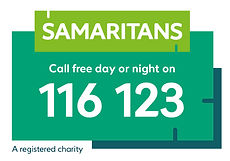Suicide Resources
If you or someone you know is at risk of suicide, please seek help immediately. Support is available, and you don’t have to go through this alone.

Suicide is the act of intentionally ending one’s own life.
Key points:
-
It is often linked to mental health conditions such as depression, anxiety, PTSD, or severe stress.
-
People may consider suicide when they feel overwhelmed by emotional pain, hopelessness, or a sense of being a burden.
-
Suicide is a preventable tragedy, and help is available through mental health professionals, crisis lines, and support networks.
Some may experience psychological symptoms such as:
-
Persistent feelings of hopelessness or worthlessness
-
Intense sadness, depression, or anxiety
-
Feeling like a burden to others
-
Extreme mood swings or sudden calmness after depression
-
Irritability, agitation, or anger
Some may experience physical symptoms such as:
-
Changes in sleep or appetite
-
Fatigue or lack of energy
-
Neglect of personal hygiene or appearance
-
Seeking access to means of self-harm (medications, weapons, etc.)
-
Withdrawing from friends, family, or social activities
-
Engaging in risky or self-destructive behaviour
When should you seek help with suicide?
You should seek help immediately if you or someone else shows any signs of suicidal thoughts, plans or behaviours. Suicide risk is always a serious situation, and early support can save lives.
Even if you're unsure, but feel that stress, emotional pain or depression are getting worse, or you feel overwhelmed and don't know how to cope, seek immediate help.
Below, you’ll find a variety of resources that may help support you. Please take a moment to explore them.
